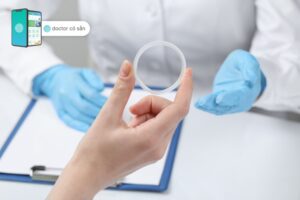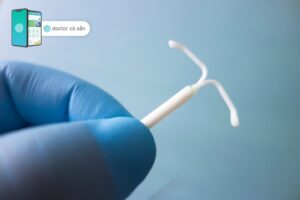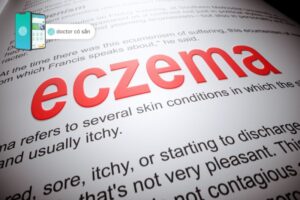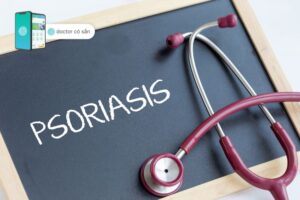HIV rapid test is widely used for detection after potential exposure. However, the accuracy of this method is a question that will be addressed by Docosan. Read more to find your answer.
Rapid HIV test at home with Docosan’s home test kit
The purpose of a rapid HIV test is to determine if the body has been infected with HIV after a potential exposure. Docosan offers a home test kit for HIV/Syphilis, allowing patients to assess their health discreetly without the need for a clinic visit.
The kit not only detects HIV, but also screens for Syphilis, a potentially hazardous sexually transmitted disease. Results are available quickly, in just 15 minutes. If the result is positive, patients will have access to support and get connected with a specialist to fully understand the risks and discover potential treatments.
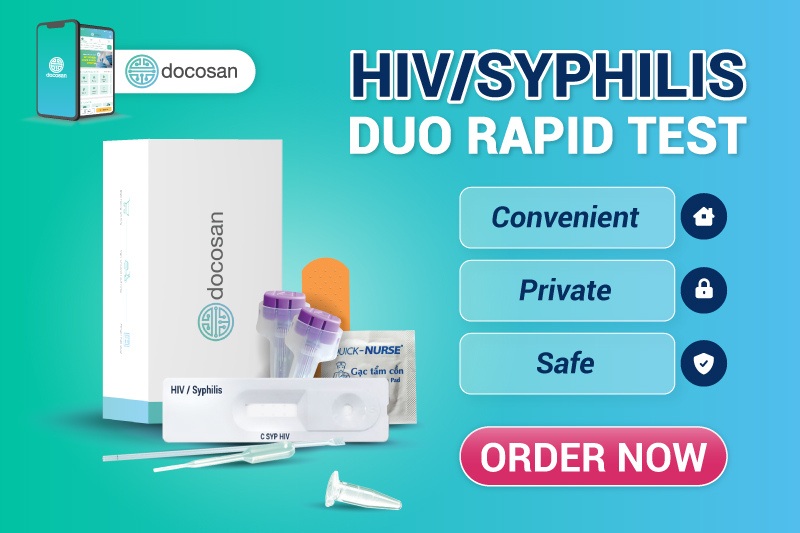
Please refer to the HIV/Syphilis Test Kit at Home
What is a rapid HIV test?
HIV is a human immunodeficiency disease caused by the HIV virus. For a long time, people have labeled this disease as the disease of the century. And of course, no one wants to be a victim of HIV themselves. However, if you are exposed, you need to get tested for HIV quickly.
Usually this test does not take too long. But because of the fear of being judged by others if they get a positive result, many people try to avoid doing it at a clinic or hospital. For those, a rapid HIV test is the best solution for you.
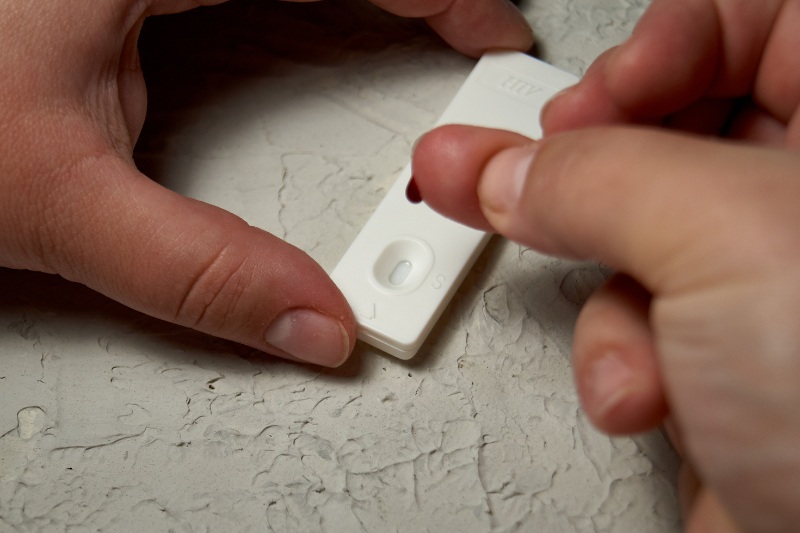
Rapid HIV test is a modern method, studied by scientists in Europe. Because of its convenience, safety and accuracy, this method is very commonly used to screen patients infected with HIV virus.
Rapid HIV virus test does not have to be performed at the clinic, but can be done at home or even at any location through the collection of blood or saliva samples of suspected infected people. Rapid HIV test is performed with simple technique, giving quick results.
When to take rapid HIV test?
It is important to understand that rapid HIV tests during the early stages of exposure may not accurately detect the virus. The results may be false negatives, as the virus needs time to multiply and grow after entering the body. At this stage, HIV symptoms may not be obvious, but the infection is still progressing silently.
Medical professionals recommend conducting rapid HIV tests after a minimum of 3 months of suspected exposure. This time frame is considered the best time to perform the test, especially a rapid test. However, testing should not be delayed beyond 6 months.
Individuals should regularly undergo rapid HIV testing
Health experts suggest that those at high risk of HIV infection should undergo rapid HIV testing, including:
- Drug users who inject and share needles.
- Sex workers.
- Individuals with viral hepatitis, tuberculosis, gonorrhea, syphilis, or chlamydia.
- Individuals with unprotected sex with multiple partners.
- Individuals who engage in unprotected sex with the aforementioned high-risk groups.

Is the rapid HIV test accurate?
Rapid HIV test usually gives results in 15-20 minutes, allowing you to determine if your body has HIV antibodies. These tests have an accuracy rate of over 99% and are widely used in clinics and at home.
However, the accuracy of rapid HIV testing depends on several factors, including the incubation period. The home rapid test kit is only accurate if the window time is more than 3 months (or 12 weeks). Before that time, the results may be false negatives or false positives. Thus, the rapid test after 12 weeks can be considered accurate.
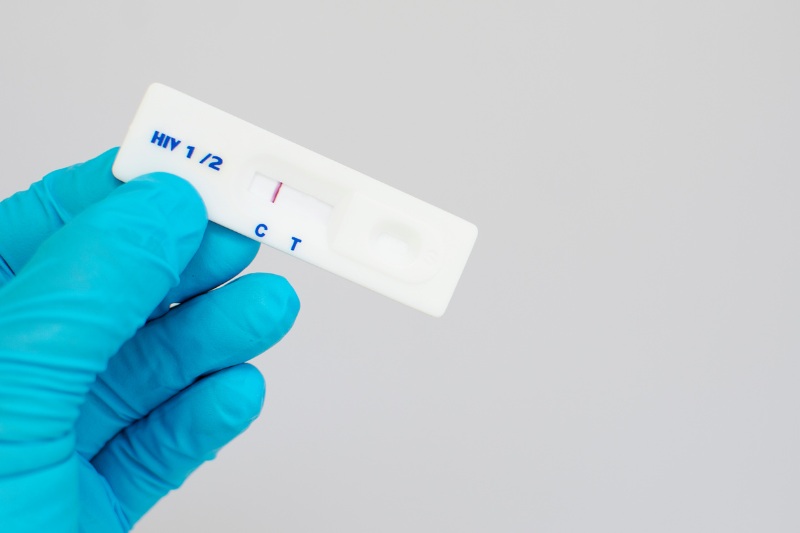
In the case of recent exposures, medical professionals recommend getting tested in a clinic. A specialist doctor will assess the level of exposure risk, examine, and provide advice. After the results are obtained, the doctor will assist in interpreting them and provide necessary post-test counseling, treatment, and monitoring.
Common results when performing rapid HIV test
After about 15-20 minutes of implementation, you can completely read the results on the device. Usually the results will fall into one of the following three cases:
- Negative: A negative result means that there are no antibodies against HIV in the blood. This means you don’t have HIV. However, a few cases can also give a “false negative” result. Therefore, you need to ensure the incubation period before the time of testing.
- Positive: A positive result means that HIV antibodies are present in the blood. This has confirmed you have HIV virus. However, to determine the most accurate, you need to conduct some other tests at a medical facility.
- Corruptive results: In fact, this case rarely happens. It could be because you are taking certain drugs or stimulants. If you receive a bad result, you should see a doctor for advice and re-test.
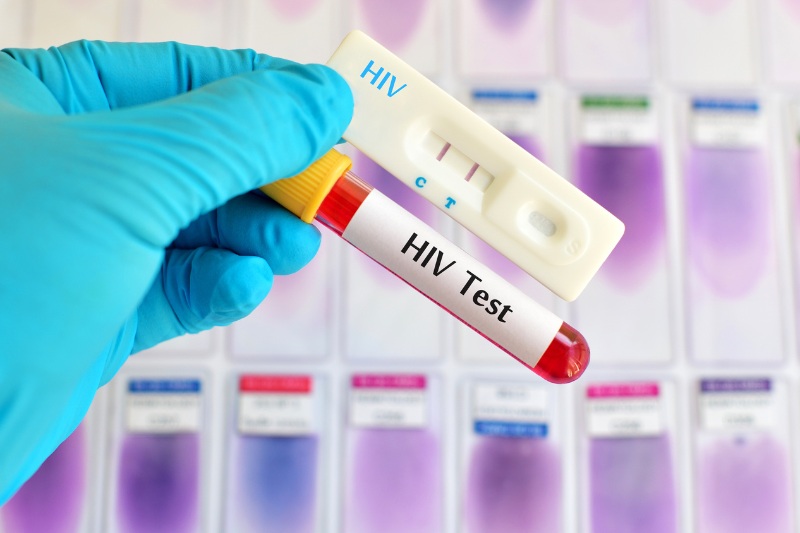
What to do when rapid HIV test at home is positive?
If you get a positive HIV result, first of all, you need to calm down and do a few more things:
- Immediately stop some behaviors that destroy the immune system such as smoking, injecting drugs, drinking alcohol, etc.
- Contact your doctor or public health officer immediately to find out what to do next.
- At the medical unit, the doctor will order a number of specialized tests to assess the level of virus infection, check for sexually transmitted diseases or other diseases.
- Be ready to share your results and medical status with your former or current sexual partner who you suspect is at high risk of HIV infection from you.

Rapid HIV test is a modern method to help screen for HIV exposure. For suspected infected subjects, it is necessary to conduct periodic tests twice a year for an appropriate period of time to give the most accurate results. Besides, if you unfortunately receive a positive result, please contact your doctor for advice and guidance.
Please refer to HIV testing services.
The article is consulted from doctors and reliable domestic and foreign sources.



